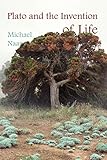Plato and the Invention of Life / Michael Naas.
Material type: TextPublisher: New York, NY : Fordham University Press, [2018]Copyright date: ©2018Description: 1 online resource (288 p.)Content type:
TextPublisher: New York, NY : Fordham University Press, [2018]Copyright date: ©2018Description: 1 online resource (288 p.)Content type: - 9780823279678
- 9780823279708
- 184 23
- online - DeGruyter
- Issued also in print.
| Item type | Current library | Call number | URL | Status | Notes | Barcode | |
|---|---|---|---|---|---|---|---|
 eBook
eBook
|
Biblioteca "Angelicum" Pont. Univ. S.Tommaso d'Aquino Nuvola online | online - DeGruyter (Browse shelf(Opens below)) | Online access | Not for loan (Accesso limitato) | Accesso per gli utenti autorizzati / Access for authorized users | (dgr)9780823279708 |
Browsing Biblioteca "Angelicum" Pont. Univ. S.Tommaso d'Aquino shelves, Shelving location: Nuvola online Close shelf browser (Hides shelf browser)

|

|

|

|

|

|

|
||
| online - DeGruyter Last Things : Disastrous Form from Kant to Hujar / | online - DeGruyter Power of Gentleness : Meditations on the Risk of Living / | online - DeGruyter Poetry and Mind : Tractatus Poetico-Philosophicus / | online - DeGruyter Plato and the Invention of Life / | online - DeGruyter Secular Lyric : The Modernization of the Poem in Poe, Whitman, and Dickinson / | online - DeGruyter Contested Loyalty : Debates over Patriotism in the Civil War North / | online - DeGruyter Experiments in Exile : C. L. R. James, Hélio Oiticica, and the Aesthetic Sociality of Blackness / |
Frontmatter -- Contents -- Introduction. Philosophy's Gigantomachia over Life and Being -- chapter 1. The Lifelines of the Statesman -- chapter 2. Life and Spontaneity -- chapter 3. The Shepherd and the Weaver: A Foucauldian Fable -- chapter 4. The Mea sure of Life and Logos -- chapter 5. Fruits of the Poisonous Tree: Plato and Alcidamas on the Evils of Writing -- chapter 6. The Life of Law and the Law of Life -- chapter 7. Plato and the Invention of Life Itself -- Conclusion: Life on the Line -- Acknowledgments -- Notes -- Index
restricted access online access with authorization star
http://purl.org/coar/access_right/c_16ec
The question of life, Michael Naas argues, though rarely foregrounded by Plato, runs through and structures his thought. By characterizing being in terms of life, Plato in many of his later dialogues, including the Statesman, begins to discover-or, better, to invent-a notion of true or real life that would be opposed to all merely biological or animal life, a form of life that would be more valuable than everything we call life and every life that can actually be lived.This emphasis on life in the Platonic dialogues illuminates the structural relationship between many of Plato's most time-honored distinctions, such as being and becoming, soul and body. At the same time, it helps to explain the enormous power and authority that Plato's thought has exercised, for good or ill, over our entire philosophical and religious tradition.Lucid yet sophisticated, Naas's account offers a fundamental rereading of what the concept of life entails, one that inflects a range of contemporary conversations, from biopolitics, to the new materialisms, to the place of the human within the living world.
Issued also in print.
Mode of access: Internet via World Wide Web.
In English.
Description based on online resource; title from PDF title page (publisher's Web site, viewed 02. Mrz 2022)


